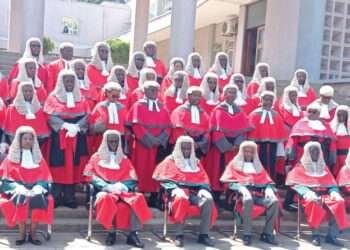The Executive Director of the Institute for Energy Security, IES, Nana Amoasi VII, has urged government to consider renewable energy as it seeks to supply cheaper and affordable power to Ghanaians.
He iterated that the inclusion of renewables in the Ghana and Africa’s energy mix is key in addressing not only energy supply needs, but to replace costly fossil-fueled thermal power plants with more greener and cheaper types, with added advantage of domestic economic opportunities.
According to him,
“The energy landscape’s transition to renewables is a global panacea for the high energy cost and sustainable development, adding that countries in the West and elsewhere have gone ahead of Africans in the exploitation of these natural and greener resources because of the immense cost-savings it brings to their economies”.
This came in an interaction with the media, after a tour of a facility owned by N.E.K Ghana Limited, an engineering and development company with expertise in wind and geothermal energy, to assess the benefits of wind energy to Ghana.
Nana Amoasi VII also said that renewable energy is the future of every thriving economy.
“We know that renewables are becoming cheaper than fossil-based power generation ends. And so, it is a good opportunity for us to have electricity at less cost because we have been complaining as a country that our bills are quite high and it goes to impact on our disposable income and the rest. And so, we have a good opportunity to buy into the renewables, accept solar and wind energy that comes at a less cost and with less environmental and social impact. Our demand for electricity will continue to grow. One may say that we have excess power supply today. You can’t guarantee same in the next two years because the demand grows every year”
he said.
According to the Country Manager of N.E.K Ghana Limited, Jasmine Kappiah, government’s freeze on further additional renewable capacity, has compelled it to consider the export of cheaper renewable energy to neighbouring countries.
The company, which signed a Power Purchase Agreement with the Electricity Company of Ghana in 2017, says it has not been able to start construction for Ghana because government has not given the green light.
The company which has the capacity to produce over 1,000 megawatts of power from their five large scale wind farms under development in the Ningo Prampram District of the Greater Accra Region, said wind energy offers Ghana the opportunity to provide clean and affordable power to the populace.
She said, they’re looking at exporting power to Togo, Benin, Ivory Coast, Burkina Faso and Sierra Leone for now.
“We now have five large scale wind farms that we are developing, accounting for approximately a thousand megawatts. The first being the Ayitepa wind farm which accounts for megawatts of wind power generation capacity. We had a PPA signed by the end of 2017 with ECG and we were aiming to essentially begin construction and we had an agreement also with the government. But today we are awaiting the green light from the Government to begin construction. Our investors and the operating and construction company that we partner with are ready to deploy the resources that are necessary to begin construction and also have obtained all the permits.”
“The second wind farm which is 200 megawatts is currently being developed for export via the GRIDCO transmission lines into the WAP. And from the WAP pipelines to ECOWAS member states like Togo and Benin, and also to potential bulk consumers in Ghana. Both of them combined are about 850 million dollars. We are unable to serve the locals due to a moratorium placed on further additional renewable energy capacity in Ghana. So, this has placed restrictions on further renewable energy to be generated for the Ghanaian economy, so based on this we will export and supply cheap and affordable electricity to our neighbouring countries”
she added.
The District Chief Executive for Ningo Prampram, Jonathan Teye Doku, lauded the company for the project in the district, adding that in the meantime, the Ministry of Energy will take a decision based on the potential of the project.





















